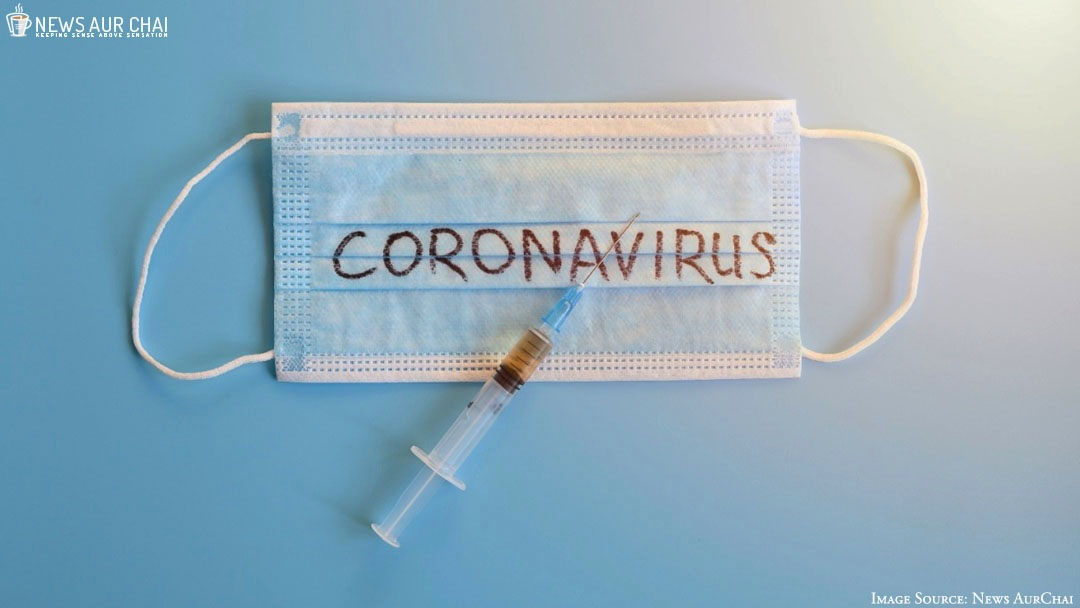
The novel coronavirus has been spreading across the world, gradually causing an alarming rate of infections and death tolls. As the confirmed infected cases nearly touch 1 lakh, every nation is taking all the preventive and protective measures to secure their citizens.
Admit all this chaos; rumours are spreading faster than the virus itself. The governments are struggling to keep a tap on these myths, rumours and false news about the virus.
Here are 14 myths and facts related to coronavirus:
1. Myth: Coronavirus is human-made
Fact: As the virus is spreading rapidly, so does this unverified theory that the virus did not come from nature but created in a lab. One version popularized outside China proposed that a Chinese lab had been secretly operating on a bioweapon that got leaked. Another version which is propagated by Chinese social mediasphere suggests that the virus originated in the US. It states that many Americans thought to have died of the flu this season were actually killed by COVID-19.
However, scientists of both China and west have denied the same; yet this rumour is gaining momentum. Experts are still in search of the exact origin of the virus.
2. Myth: Hot bath can prevent the coronavirus
Fact: Taking a hot shower will not prevent you from catching COVID-19. Average human body temperature remains around 36.5°C to 37°C, regardless of the temperature of your bath or shower. This can only burn your body; the best way to prevent is to maintain proper hygiene.
3. Myth: Using imported Chinese product can infect you from coronavirus
Fact: Even though the new coronavirus can stay on surfaces for a few hours or up to several days; however, according to WHO the virus does not survive long on objects like packages or letters, it is entirely safe to use products from China. The virus is contagious but spreads from one person through another.
4. Myth: Mosquito bites can spread coronavirus.
Fact: To date, there has been no evidence or facts to support the statement that new coronavirus could be transmitted by mosquitoes. The new coronavirus is a respiratory virus which spreads primarily through droplets formed when an infected person coughs or sneezes, or through droplets of saliva or discharge from the nose.
5. Myth: Homemade remedies can cure coronavirus
Fact: Eating garlic, onion or taking vitamin C and drinking water is good for your health. This might immediately help you build immunity; however, it will not protect or heal you of COVID-19. Even putting sesame oil on your body or spraying yourself with alcohol or chlorine will not kill the virus.
6. Myth: Hand dryers can kill 2019-nCoV
Fact: According to WHO hand dryers can’t kill the virus. To protect yourself, one should frequently clean your hands with an alcohol-based hand rub or wash them with soap and water. Once your hands are cleaned, dry them thoroughly by using paper towels or a warm air dryer.
7. Myth: Eating chicken and eggs can infect you
Fact: Several people have stopped consuming chicken and egg following this rumour. Scientists are yet to discover which animal or what is the cause of the outbreak.
8. Myth: Ultraviolet disinfection lamp kills the new coronavirus
Fact: UV lamps should not be used to sterilize hands, or other areas of skin as UV radiation can cause skin irritation.
9. Myth: Thermal Scanners can detect virus-infected from the very starting stage
Fact: Thermal scanners are useful in identifying people who have developed a fever because of infection with the new coronavirus.
However, they cannot detect people who are infected but are not yet sick with a fever. This is because it takes between 2 and 10 days before people who are infected become ill and develop a fever.
10. Myth: Kid can’t get infected
Fact: Anyone of any age group can get infected, though older adults and those with pre-existing medical conditions are profoundly vulnerable to severe infections. Even though most confirmed of the virus have occurred in adults, children have been infected too.
11. Myth: Cow dungs and cow urine can cure coronavirus
Fact: This statement became viral after an Indian Politician, Suman Haripriya, stated that cow dungs and cow urine could cure the Chinese virus. However, scientists are yet to find a cure for the COVID19 plus there is no scientific evidence as to cow dung, and cow urine can cure or prevent this virus.
12. Myth: Vaccine against pneumonia will protect from the new coronavirus
Fact: Vaccines against pneumonia, such as pneumococcal vaccine and Haemophilus influenza type B (Hib) vaccine, do not provide protection against the new coronavirus.
The virus is so new and different that it needs its own vaccine. Scientists are trying to develop a vaccine against 2019-nCoV, and WHO is supporting their efforts.
Although these vaccines are not effective against 2019-nCoV, vaccination against respiratory illnesses is highly recommended to protect your health.
13. Myth: Antibiotics help in preventing and treating the new coronavirus
Fact: Antibiotics can help you fight bacteria; however, new coronavirus–being a virus–will remain unaffected. According to WHO, doctors are prescribing antibiotics to those infected with coronavirus as the infected are more prone to bacteria too.
14. Myth: Pets are spreading COVID-19
Fact: Currently, there is no evidence as to pets can be one of the lead cause of spreading the virus. There is one confirmed case of a dog with the virus in China. Researchers are still trying to find more evidence; however, it is better to wash your hands with soap and water after playing with your pet animals.
So be well aware of the facts and don’t follow the myths blindly and fall prey to virus.





